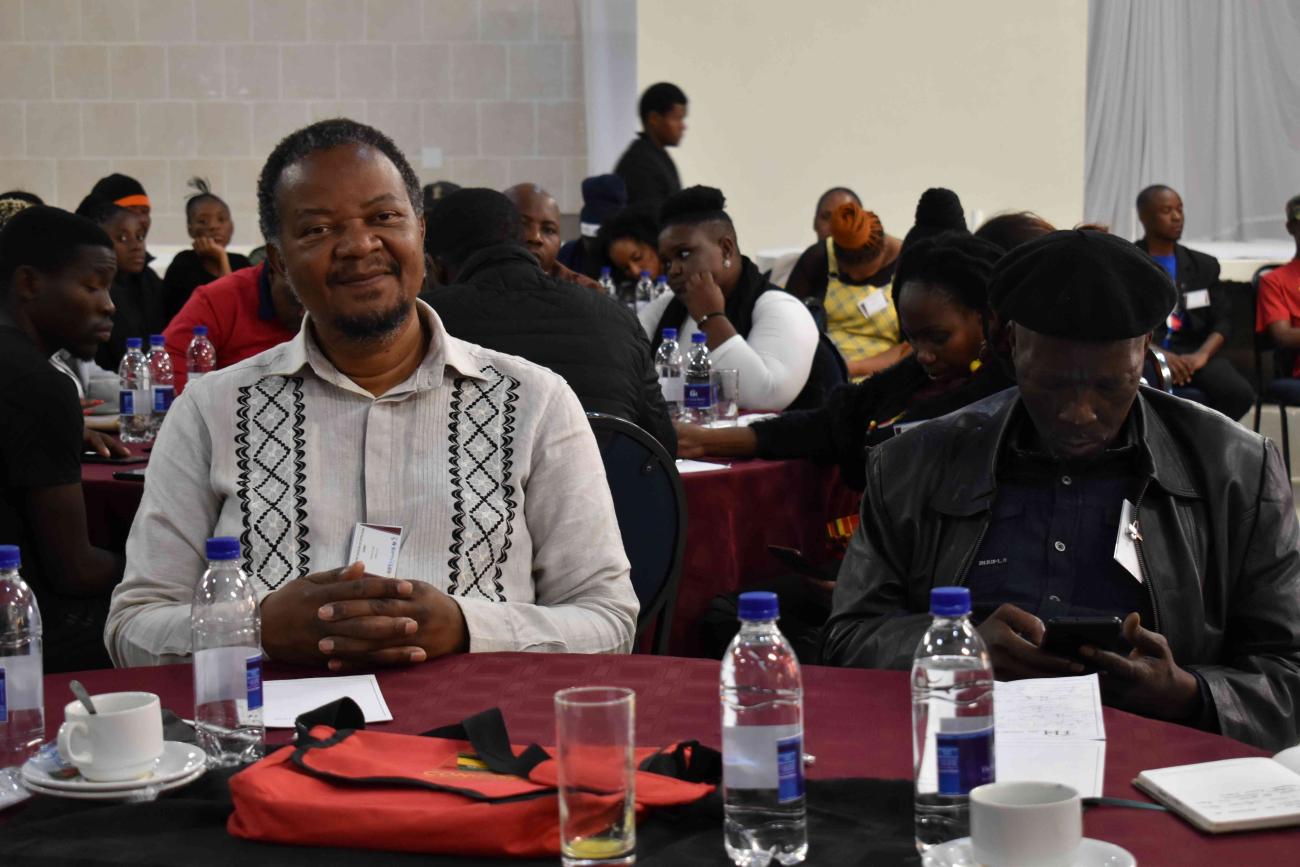The second edition of the annual Freedom of Expression Summit drew over 150 participants from civil society groups, political formations, religious groups, media, government institutions, private sector and development partners, including artists and activists for climate change.
The Summit, hosted by the Campaign for Free Expression (CFE) in partnership with the Canadian High Commission, the UK High Commission and the United Nations in Eswatini, was held at the George Hotel in Manzini on 15 June 2023.
According to Professor Anton Harber, Executive Director of the Campaign for Free Expression, the Summit was created as a dedicated platform to discuss pertinent issues relating to human rights in Eswatini. “The vision for the annual summit is to build a representative coalition of organisations and individuals willing and prepared to defend freedom of expression in the country at any given point in time,” said Professor Harber.
Former CANGO Executive Director, Emmanuel Ndlangamandla, who represented the Multistakeholder Forum (MSF) at the Summit, noted that challenges in Eswatini emanate from a ‘governance crisis’. He said Emaswati needed to reflect on the current challenges to forge a sustainable way forward. He argued that the ongoing national elections were not going to address the challenges faced by the country. “As a collective, we need change,” he said. “It is a lie that only a minority need change. The elections will not result in a change on the people’s lives.”
Nombulelo Motsa, who spoke on behalf of the Political Party Assembly (PPA), observed that the majority of the media in Eswatini are controlled by the State and were primarily pushing ‘propaganda’. She also noted that some with opposing political views were ‘harassed by State agents’. “People are silenced when they express themselves,” she said, while urging political groups to unite.
Pastor Phetsa Dlamini, representing Mangololo Movement, said the organisation was established in July 2021 to respond to the unrest that had erupted a month earlier. “We wanted to understand why there was so much chaos in the land and we decided to stand for what was correct,” he said. He added that they wanted to make sure that Emaswati understand that they must act within the law. “All that we do must be in line with our laws, constitution and practices,” he said. “We also want to promote tolerance of political views. We want to see everyone being allowed to express themselves.”
As a precursor to this year’s summit, CFE and partners including UN OHCHR combined efforts with the National Association of Journalists (ENAJ) to host a two-day journalists’ election coverage training workshop 13-14 June 2023. The workshop is set against the backdrop of the upcoming national elections in Eswatini, with a focus on building the capacity of at least 40 media professionals to integrate a human rights-based approach in their elections coverage by reporting independently, fairly, and inclusively. The Kingdom of Eswatini will hold national elections on 26th and 29th September. Trainees for the workshop were drawn from mainstream media and freelancers, including print, broadcasting, online and web-based practitioners.





